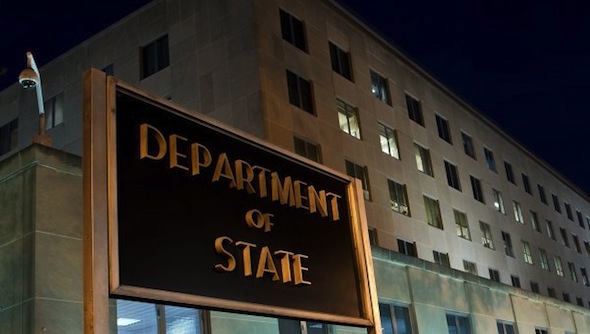Russian Laws, Policies Restrict Religious Freedom – US Report
RIA NOVOSTI

WASHINGTON, May 20 (RIA Novosti) – Russia is among several countries around the world including Saudi Arabia, North Korea, Cuba, Iran, and China that imposed restrictions on freedom of religion last year, according to an annual report released Monday by the US State Department.
“This report is a clear-eyed, objective look at the state of religious freedom around the world. And when necessary, yes, it does directly call out some of our close friends, as well as some countries with whom we seek stronger ties. And it does so in order to try to make progress, even though we know that it may cause some discomfort,” said US Secretary of State John Kerry in comments to the press.
“But when countries undermine or attack religious freedom, they not only unjustly threaten those whom they target. They also threaten their country’s own stability… Attacks on religious freedom are therefore both a moral and a strategic national security concern for the United States,” he added.
According to the International Religious Freedom Report for 2012, the Russian government “targeted members of minority religious groups through the use of extremism charges to ban religious materials and restrict groups’ right to assemble.”
It said authorities also “restricted religious minorities through detention, raids, denial of official registration with the Ministry of Justice (MOJ) and denial of visas to religious workers.”
“Religious freedom is essential for a stable, peaceful, and thriving society… As this report makes clear, much work remains to be done,” said Suzan Johnson Cook, Ambassador-at-Large for International Religious Freedom, a division of the US State Department which monitors religious persecution and discrimination around the world.
The report finds evidence of anti-Muslim sentiment and discrimination in Russia, as well as an increase in anti-Semitism, pointing to vandals in Russia painting a swastika on a St. Petersburg synagogue’s fence in May 2012, and in July 2012, vandals painting a swastika on a synagogue wall in Irkutsk.
“Members of minority religious groups continued to experience harassment and occasional physical attacks. Violent extremism in the North Caucasus region and an influx of Central Asian migrant workers led to negative attitudes in many regions toward traditionally Muslim ethnic groups,” the report said.
Among the instances that raised concern in Russia:
• Reports of detentions and onerous financial penalties against members of minority religious groups.
• Detaining Jehovah’s Witnesses and adherents of the Islamic theologian Said Nursi and charging them with “extremism.”
• Searching and seizing the property of members of minority religious groups such as Scientologists and Falun Gong.
• Restrictions on the rights of minority religious groups to meet publicly.
• A two-year prison sentence for members of the punk rock band “Pussy Riot,” for “hooliganism motivated by religious hatred,” after they performed a protest song in Moscow’s Cathedral of Christ the Savior.
“There is no state religion, but the Russian Orthodox Church and other ‘traditional’ religious communities received preferential consideration,” the report found.
The annual report details the status of religious freedom in 195 countries throughout the world. Mandated by, and presented to, the US Congress, under the International Religious Freedom Act of 1998.
